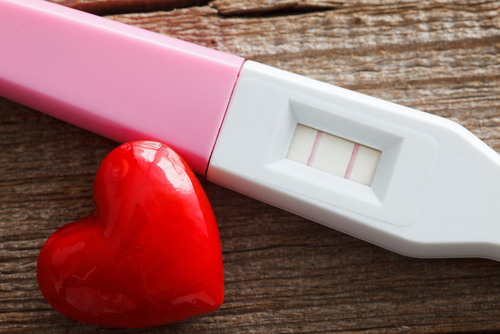Evaluation of immature immune cell populations in the endometrium may help predict pregnancy outcome in women with endometriosis, according to a study published in the American Journal of Reproductive Immunology.
Endometriosis is the leading cause of infertility among women. It is believed that alterations in the uterus microenvironment may negatively affect embryo implantation. Although it is still unclear what makes the endometrium less receptive, several lines of evidence suggest that the immune system may hold the answer.
Active pro-inflammatory immune cells are crucial to sustain and promote endometriosis. In addition, studies have proposed that uterine natural killer (NK) cells — a subset of immune cells that prevent infections from spreading — could be important contributors.
Uterine NK cells are thought to actively contribute to the formation of new blood vessels during placental development and uterine remodeling for and during pregnancy. However, the relationship between uterine NK cells and infertility in women with endometriosis is not fully understood.
In the study “Uterine natural killer cell progenitor populations predict successful implantation in women with endometriosis-associated infertility,” a research team at Trinity College Dublin, in Ireland, analyzed matched endometrium and blood samples from 58 women diagnosed with endometriosis.
Of these patients, 33 underwent assisted reproductive technology (ART) treatment, including intrauterine insemination (IUI), in vitro fertilization (IVF), intracytoplasmic sperm injection (ICSI), or frozen embryo transfer (FET). Among these, 23 women achieved successful pregnancy, and 10 were not able to get pregnant. The remaining 25 women in the study conceived spontaneously after endometriosis surgery.
Analysis of uterine and blood-circulating NK cell levels did not reveal significant differences between women who achieved successful implantation and those who did not.
Additional evaluations revealed that endometrium biopsies from the patients who achieved successful pregnancy had increased levels of a subset of uterine NK progenitor cells in comparison to women who failed implantation. In contrast, both groups of patients showed similar levels of the progenitor cells circulating in the blood.
“Our study revealed that uterine NK progenitor cell populations are markedly different in patients with endometriosis who proceed to successful or failed embryo implantation and may define a novel predictor of implantation success,” the researchers stated.
The team also believes their findings demonstrate that the NK cells that populate the uterus are markedly different from those in the blood. This further suggests that “focusing on peripheral [in the blood] NK cells for diagnostic or therapeutic interventions in female infertility” can be a limited approach, they stated.

